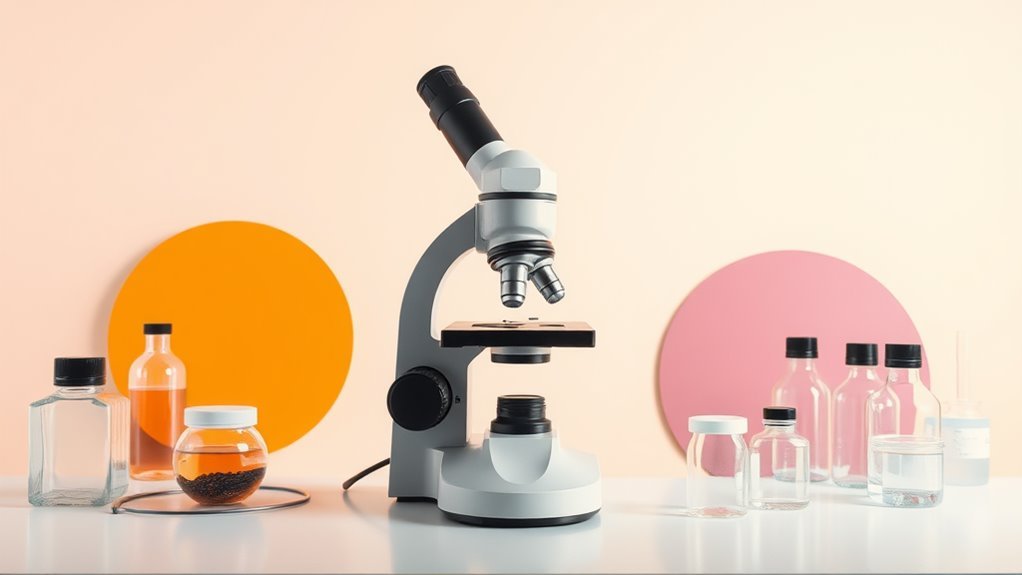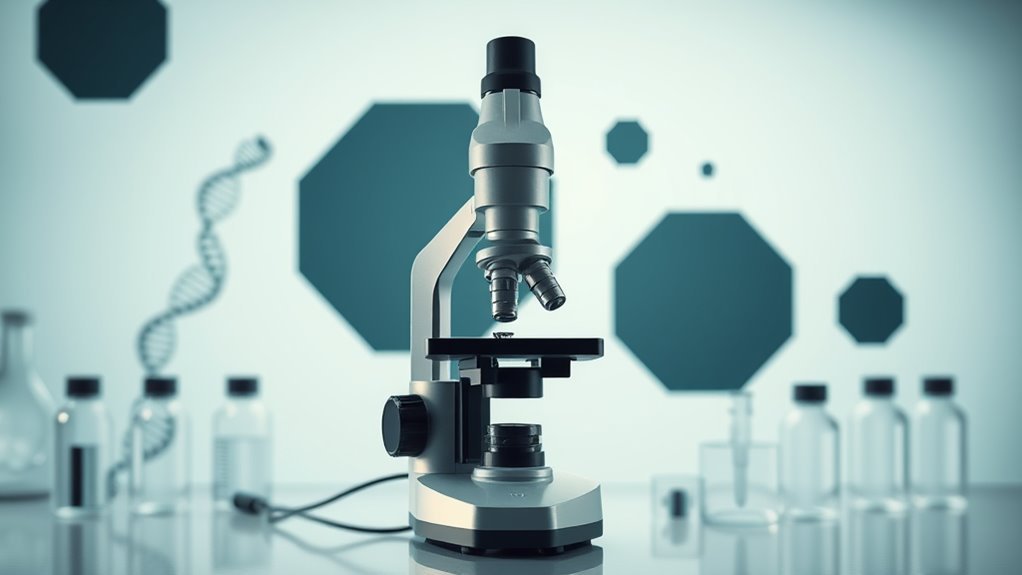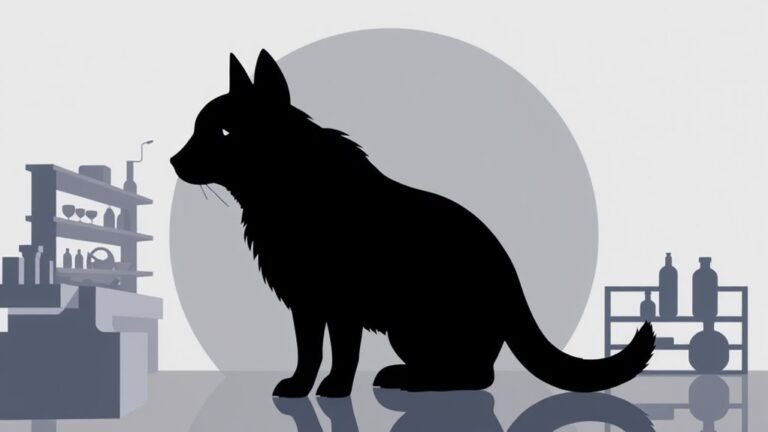Animal testing brings a mix of pros and cons. On one hand, it helps speed up vaccine development and advances our understanding of diseases like cancer. On the flip side, there are serious ethical concerns regarding how animals are treated. Many animals suffer, and the results can sometimes be misleading because human biology differs greatly from that of animals. So, while animal testing has made huge contributions to medicine, it also raises some important questions worth considering further.
Main Points
- Pros: Animal testing has accelerated vaccine development, leading to effective vaccines for diseases like polio and measles.
- Pros: It enhances understanding of complex diseases, contributing to advancements in targeted therapies for conditions like cancer and diabetes.
- Cons: About 94% of drugs that pass animal tests fail in human trials, highlighting poor predictive validity and relevance.
- Cons: Ethical concerns persist, with reports of psychological distress and inhumane treatment of laboratory animals raising questions about animal welfare.
- Cons: Alternatives to animal testing are emerging, potentially providing more accurate and humane research methods without the associated public health risks.
Is Animal Testing Ethically Justified?
Is animal testing really as justified as some might think? Many people have serious ethical concerns about animal experimentation.
After all, a staggering 94% of drugs that pass these tests fail in human trials, leaving individuals scratching their heads about the whole process.
It’s tough to ignore that only 5% of animals in labs are protected by the Animal Welfare Act, while rats and mice face mistreatment with little legal recourse.
Plus, with modern technology bringing alternatives to animal testing, like in vitro methods and cool models like zebrafish, the argument for using animals is getting weaker.
As public sentiment shifts, it raises a fundamental question: should we be prioritizing humane methods over outdated practices?
Pro #1. Accelerates Vaccine Development Speed
Animal testing isn’t just a hot topic for ethical debates; it also plays a key role in speeding up the development of vaccines. Using animal models, researchers can quickly assess the safety and efficacy of vaccines before they reach human trials.
For example, the rapid creation of COVID-19 vaccines relied heavily on animal testing to understand immune responses and potential side effects. This approach has been crucial historically, aiding in the near eradication of diseases like polio and measles.
Studies show that vaccines developed through animal testing enjoy a higher success rate in human trials. By providing understanding into biological mechanisms, animal testing helps create more effective and targeted vaccine formulations, making it an essential step in vaccine development.
Con #1. Inhumane Treatment of Test Subjects
While many people focus on the benefits of animal testing, the darker side of this practice often gets overshadowed. The inhumane treatment of test subjects raises serious ethical concerns about their welfare.
For example, only 5% of animals used in experiments are protected by laws, leaving countless rats, mice, and birds vulnerable to mistreatment. Reports have surfaced of primates facing intimidation and harm, such as being shot with dart guns. Many lab animals endure severe pain and distress, often confined in inadequate conditions.
To top it off, a staggering 94% of drugs that pass these tests fail in human trials. This high failure rate begs the question: is it really worth subjecting animals to such harsh realities for results that often don’t deliver?
Pro #2. Enhances Understanding of Diseases

Understanding diseases can feel like trying to solve a giant puzzle with missing pieces, but that’s where animal testing comes into play.
Animal experiments are essential for enhancing understanding of diseases like cancer, diabetes, and heart conditions. Scientists use these studies to watch how diseases develop and how potential treatments work in real living bodies. Since many lab animals share genetic and physiological traits with humans, findings can be effectively linked to human health.
For example, research on Alzheimer’s and Parkinson’s has been made possible through these tests, helping us grasp how therapies impact brain functions.
Con #2. Misleading Results From Animal Tests
When it comes to testing new drugs, the results can sometimes feel like a game of telephone gone wrong. A staggering 94% of drugs that pass animal tests eventually fail in human trials. This raises serious concerns about the predictive validity of animal testing.
Many diseases simply don’t show up in animals, leading to misleading results that can produce ineffective or even dangerous treatments. Additionally, animal models often overlook the complex makeup of human biology, which can create major gaps in understanding drug effectiveness and safety.
With around 95% of drugs tested on animals failing to gain approval for human use, it’s clear that relying on animal testing can lead researchers down a misleading path, leaving us questioning its reliability.
Pro #3. Improves Surgical Techniques’ Safety
Animal testing plays an essential role in making surgical techniques safer and more effective, proving that sometimes the best way to learn is by experimenting (safely) on our furry friends.
Through careful studies on animals, researchers have developed advanced surgical methods, like organ transplants, which have saved countless lives. These preclinical trials provide crucial information on how bodies react during surgery, allowing doctors to refine their techniques before working on human patients.
Plus, animal testing has led to the creation of groundbreaking surgical tools that improve precision and enhance outcomes. By understanding healing processes and the effects of anesthesia, researchers can establish safer protocols, ultimately ensuring that human patients receive the best care possible.
Con #3. Causes Psychological Distress in Animals

While many people see animal testing as a necessary part of scientific progress, it’s important to acknowledge that this practice can lead to serious psychological distress for the animals involved.
In labs, animals often find themselves in stressful environments, which can cause anxiety, depression, and even aggression. Imagine being confined and poked at—it’s no wonder that about 80% of laboratory animals show signs of notable psychological distress.
This emotional turmoil raises serious ethical concerns regarding animal welfare. As they endure invasive procedures, their suffering can become chronic, leading to lasting trauma.
Considering these factors, it’s vital to question whether the benefits of animal testing truly outweigh the emotional costs to our furry counterparts.
Pro #4. Advances Veterinary Medicine Practices
Veterinary medicine has taken giant leaps forward, thanks in part to the practice of animal testing. This research has led to groundbreaking advances in veterinary medicine practices, especially in developing essential veterinary vaccines like those for rabies and distemper.
These vaccines have not only protected countless pets but have also improved their health and lifespan. In addition, studies involving animals have paved the way for improved surgical techniques, such as spaying and neutering, and have helped diagnose and treat common ailments like diabetes and arthritis.
Thanks to the Animal Welfare Act, these testing practices are conducted ethically, ensuring that animals receive humane treatment. All in all, animal testing has played a significant role in creating a healthier future for our furry friends!
Con #4. Increases Risk of Inaccurate Results
When diving into the world of animal testing, one can’t ignore the fact that it carries a hefty risk of producing inaccurate results. A staggering 94% of drugs that pass animal tests end up failing in human trials, which raises eyebrows about their predictive value.
Why does this happen? Well, differences in metabolism and physiology between species can lead to some pretty misleading outcomes. Imagine a drug behaving one way in a mouse and another in a human—it’s like a wild guessing game!
Plus, variability in animal models, like genetic quirks and health issues, can really mess things up. All these factors make it tough to trust animal testing completely when predicting how a drug will work for us humans.
Pro #5. Enhances Drug Safety Testing

Understanding the risks of inaccurate results in animal testing leads to a fascinating aspect of the process: enhancing drug safety testing.
Animal testing is like a sneak peek into how new medications might perform in humans. It helps researchers assess both the efficacy of potential drugs and their side effects before they ever reach human trials.
With mammals like mice sharing 98% of our genetic makeup, these little critters provide essential observations into human responses.
Surprisingly, about 94% of drugs that pass animal tests fail in human trials, highlighting the need for rigorous testing.
Regulatory agencies, such as the FDA, often insist on animal testing data to guarantee drug safety, proving that these four-legged friends truly play a heroic role in medicine.
Con #5. Increases Public Health Risks
Animal testing, while often seen as a necessary step in drug development, can actually raise considerable public health risks.
Surprisingly, about 94% of drugs that pass animal testing fail in human trials. Why? Because the safety data from animals can be misleading! Different species react in ways that can lead to dangerous surprises for humans.
Think about the Vioxx case, where a drug linked to serious heart issues was approved after animal tests. This misstep shows how relying on animal models can result in harmful drugs hitting the market.
Plus, when resources are spent on animal testing, we miss out on better human-based research that could provide more accurate results. This can shake public confidence in new therapies, and that’s a big deal!
Pro #6. Promotes Breakthroughs in Treatments
Advancements in medical treatments often arise from the dedicated research involving animals, and the impact of this practice cannot be overstated.
Animal testing has been essential to develop medical innovations, leading to vaccines for diseases like polio and measles, which have saved countless lives. Additionally, research on animals has paved the way for effective treatments for chronic conditions such as diabetes and high blood pressure.
The majority of modern surgical techniques, including organ transplants, owe their existence to discoveries gained through animal experimentation. Even complex diseases like cancer have seen advancements, thanks to this research and development.
While not every drug makes it through testing, animal studies play a crucial role in ensuring safe and effective treatments for humans.
Con #6. Increases Disease Transmission Risks

While the quest for medical advancements often relies on research involving animals, it’s important to acknowledge the flip side of this coin—namely, the risks associated with disease transmission.
When laboratory animals are kept in close quarters, they can become a breeding ground for zoonotic diseases, which are those sneaky pathogens that jump from animals to humans. This close confinement can stress the animals, weakening their immune systems and making them more vulnerable to infections.
Believe it or not, this situation has led to new infectious diseases popping up! The Centers for Disease Control and Prevention (CDC) warns that laboratory animal facilities can be hot spots for these zoonotic infections, highlighting the need for strict biosecurity measures to keep everyone safe.
Pro #7. Promotes Organ Transplant Research
When it comes to organ transplant research, the role of testing on animals is nothing short of exceptional.
Animal testing has been key in developing immunosuppressive drugs, which help prevent organ rejection after transplants. Imagine needing a new heart or kidney; thanks to research on animals, doctors can now perform these life-saving procedures more effectively.
By studying how different bodies accept or reject organs, scientists have learned a lot about compatibility. Plus, these studies have led to groundbreaking transplantation techniques, including living donor transplants.
All of this means that countless lives have been saved. So, while animal testing may spark debate, its contributions to organ transplant research are truly extraordinary and have made a real difference in many people’s lives.
Con #7. Increases Human Allergy Risks
Many people might not realize that the very drugs designed to help us could sometimes come with unexpected allergy risks. Animal testing, while essential for drug development, often fails to predict human responses accurately. Around 30% of individuals experience allergic reactions to medications, primarily due to the differences in immune systems between humans and animals. Surprisingly, some compounds may cause allergic sensitivities in people that animal models miss entirely. This can lead to unexpected health risks after a drug hits the market.
| Aspect | Details |
|---|---|
| Testing Method | Animal Testing |
| Human Allergy Risk | Increased due to inaccurate models |
| Regulatory Concerns | Inadequate representation of humans |
Understanding these risks is essential for making informed decisions about medical treatments.
Pro #8. Supports Genetic Research Advances

Animal testing has been a game-changer in the world of genetic research, proving that sometimes, the tiniest creatures can lead to the biggest advancements.
By studying animals like mice and rats, which share about 98% of their genes with humans, scientists dive deep into the mysteries of human diseases. These furry little scientists help researchers understand how specific genes influence illnesses such as cancer and diabetes.
Plus, with genetically modified animals, like knockout mice, researchers can pinpoint which genes are troublemakers. This research paves the way for exciting treatments, including gene therapy.
Con #8. Increases Regulatory Compliance Costs
Maneuvering the world of animal testing can feel like a wild roller coaster, especially when it comes to the hefty costs of regulatory compliance. Research facilities often find themselves shelling out millions just to meet legal standards, like those outlined in the Animal Welfare Act.
This means that laboratories must keep extensive documentation and oversight, which can really add to operational expenses. To make matters more complex, training staff to follow ethical guidelines can be an additional financial burden.
Plus, waiting for institutional review boards (IRBs) to approve studies can lead to delays and extra costs. If researchers fail to comply with these regulations, they risk hefty fines and tarnished reputations, forcing them to spend even more on compliance efforts.
Pro #9. Promotes Early-Stage Drug Testing
In the world of drug development, testing on animals plays an essential role, especially during those pivotal early stages. Animal testing helps researchers figure out if new medications are effective and safe before they try them on humans.
Surprisingly, about 94% of drugs that pass these tests still fail later on, which shows just how important this initial step is. Using animals, particularly rodents, is handy because they share about 98% of our genes! This closeness helps scientists predict how a drug might behave in people.
Plus, early-stage drug development can uncover potential side effects that might not show up in laboratory tests. So, while it might seem tough, animal testing is a vital part of ensuring safety in medicine!
Con #9. Increases Zoonotic Disease Spread

While animal testing plays a considerable role in drug development, it’s not without its complications. One major concern is the increased risk of zoonotic diseases, which are illnesses that jump from animals to humans.
In research settings, close contact between humans and test animals can make it easier for these diseases to spread. Laboratory animals might carry unique pathogens not found in wild populations, raising the alarm for new outbreaks.
If these pathogens escape into the environment during testing, they can wreak havoc on public health. Plus, the movement of animals between facilities creates more chances for cross-species infections.
As global travel rises, the stakes get higher, making strict biosecurity measures in animal testing more important than ever.
Pro #10. Supports Cancer Research Advancements
Animal testing has been a game changer in the fight against cancer, and it’s hard to overstate just how crucial it is. When researchers use animal models, they uncover discoveries that lead to targeted therapies for breast, prostate, and other cancers, greatly improving survival rates.
By studying cancer in animals, scientists also identify genetic mutations that can personalize treatments for patients. Imagine finding the right medicine just for you!
Plus, about 70% of cancer drugs move on to human trials after being tested on animals, emphasizing their essential role in drug development.
Animal testing has even paved the way for immunotherapies, which let the body’s own defenses battle cancer. Who knew furry friends could help save lives?
Con #10. Historical Ethical Violations
Ethics in animal testing has a rather murky past, filled with some questionable practices that would make anyone raise an eyebrow. Historical ethical violations have been rampant, with reports of maltreatment of primates at places like the New Iberia Research Center. Can you imagine that?
The Animal Welfare Act, established in 1966, protects only about 5% of animals used in research, leaving many, like rats and mice, in the lurch. Back in ancient Rome, animals faced severe suffering during vivisection, setting the stage for today’s ethical dilemmas.
Even modern studies have their flaws, with selective reporting leading to misinterpretation. Many animals endure prolonged suffering, confinement, and distress, raising serious questions about our responsibility towards these living beings in research.
Animal Testing’s Dark Past

In the grand fabric of scientific discovery, a shadowy thread runs through the history of animal testing. Dating back to at least 500 BC, prominent figures like Aristotle conducted experiments on living beings, often neglecting animal welfare.
The practice of vivisection, especially rampant in ancient Rome, showcased a troubling disregard for animals. Fast forward to today, and ethical concerns still loom large, as only about 5% of research animals are protected under the Animal Welfare Act.
Disturbingly, some experiments have involved intimidation and harm to chimpanzees, highlighting a painful legacy. While regulations have improved, the history of animal testing serves as a reminder of the ongoing struggle between scientific ambition and the well-being of animal subjects, sparking debates that still echo today.
Final Thoughts
The debate surrounding animal testing is a complex fabric woven from threads of scientific achievement, ethical considerations, and public health.
On one hand, animal testing has led to incredible medical advancements, helping to tackle diseases like cancer and diabetes.
On the other hand, some argue that the pros may not outweigh the cons, especially since about 94% of drugs that pass these tests fail in humans.
Concerns about animal welfare also loom large, as many animals are not adequately protected.
Thankfully, the rise of alternative testing methods, like in vitro studies and cutting-edge models such as Zebrafish, offer promising solutions.
In the end, society must maneuver through this complex environment, balancing the need for progress with compassion for our furry friends.
Resources
Animal Testing and Medicine – PMC: Overview of animal testing’s role in medical advancements.
History of Animal Testing – Wikipedia: Comprehensive history from ancient to modern times.
Brief History of Use of Animals in Biomedical Research – OUP: Chronology of animal use in biomedical research.
History of Animal Experimentation and Animal Rights – Beonchip: Early instances and ethical considerations of animal testing.
History of Animal Research – Understanding Animal Research: Evolution of animal research practices in the UK.
Animal Testing – Britannica: Pros and cons of animal testing.
Medical Testing on Animals: A Brief History – Animal Justice: Historical perspective on medical testing involving animals.
Animal Research in the Age of Antiquity – Danish 3R-Center: Animal experimentation practices in ancient times.
Animal Testing – Wikipedia: Detailed article on animal testing methodologies and history.
Animal Welfare Act of 1966 – Wikipedia: Legislative history regulating animal testing in the U.S.




